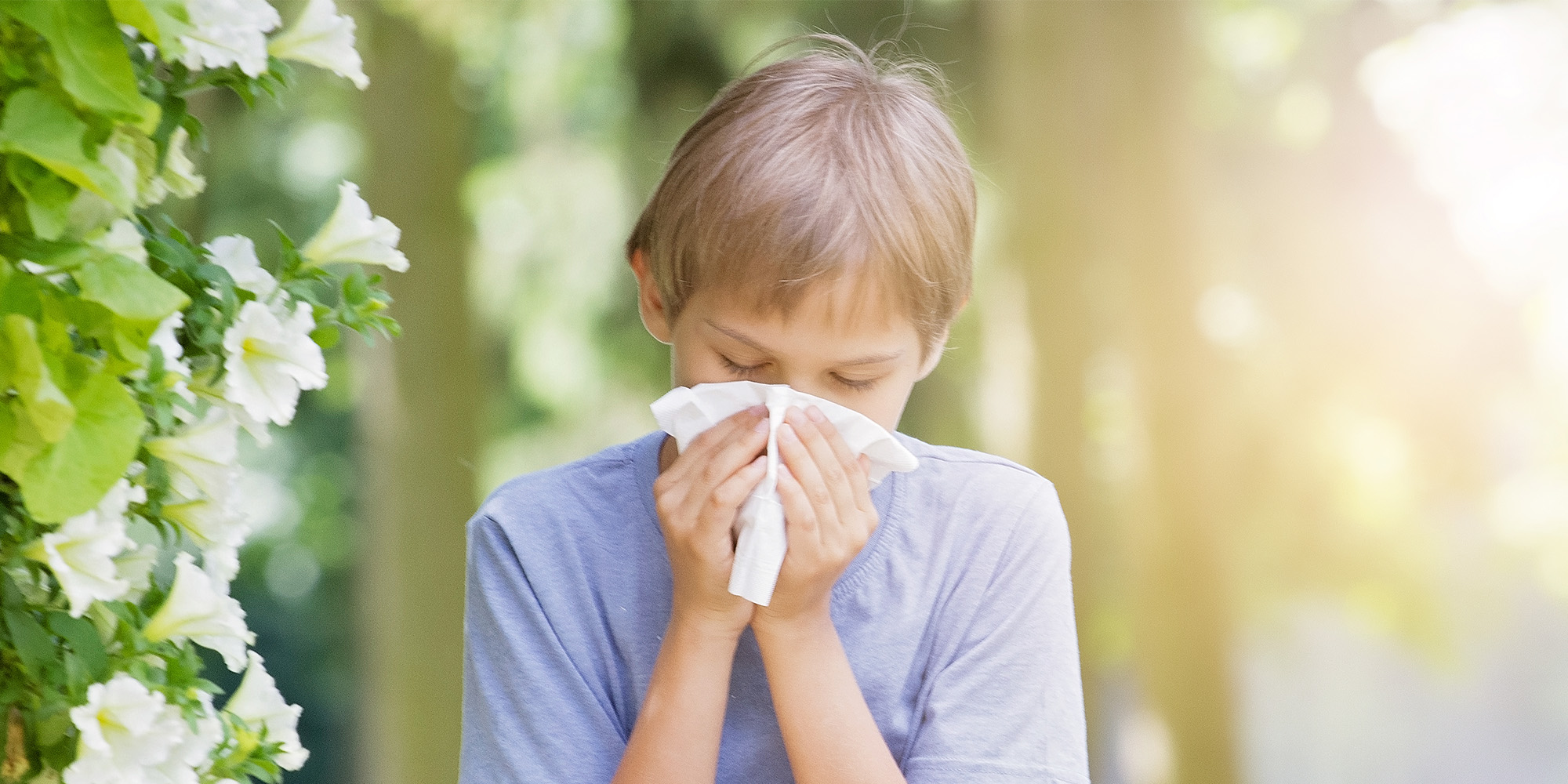Allergy Relief Tips for Your Child
April 25, 2017
Categories: Pediatrics, ENT/Otolaryngology, Allergy & Immunology
 By Joyce Rabbat, MD, Allergy and Immunology
By Joyce Rabbat, MD, Allergy and Immunology
It isn’t always easy to tell if your child has allergies, but it is important to know.
Children with nasal allergies are at higher risk for developing asthma. The symptoms also may disrupt a child’s sleep, and sleep is important to growth and development.
One of the major causes of allergies in the United States is ragweed pollen. It begins pollinating in early to mid-autumn. Your allergy season will be determined by what your allergies are.
Different plants pollinate in different times of the year, so an allergist can help guide you as to when to take medications and how best to manage the symptoms.
While flowers often are blamed for pollen allergies – and their uncomfortable symptoms, they are rarely the cause; their pollen is too heavy to be airborne. Pollen from ragweed, trees and grasses usually are to blame.
Allergies can cause many ear, nose, and throat symptoms in children, but allergies can be difficult to separate from other causes.
Here are six clues that allergies may be affecting your child. If you notice any of these symptoms in your child, make sure you share them with your child's doctor.
Clue #1: Your child is suffering from other allergies
Children with allergies often have a history of other allergic tendencies (or atopy). These may include early food allergies or atopic dermatitis in infancy. Also, allergies tend to run in families. If a parent has allergies, so may the child.
Clue #2: Your child has a stuffy or runny nose
Nasal allergies can cause sneezing, itching, nasal rubbing, nasal congestion and nasal drainage. Usually, allergies are not the primary cause of these symptoms in children under 4 years old.
In allergic children, these symptoms are caused by exposure to allergens (commonly pollens, dust mites, mold and pet dander). Pay attention to which time of year or in which environments the symptoms are worse. That information will provide important clues to share with your doctor.
Clue #3: Your child is developing ear infections
One of children’s most common medical problems is otitis media, or middle ear infection, a condition that can be very painful. In children under 2 years old, allergies are not usually the main cause of ear infections.
In older children, allergies may contribute to ear infections, fluid behind the eardrum, or problems with uncomfortable ear pressure. Diagnosing and treating allergies help keep the ears healthy.
Clue #4: Your child has a sore throat
Allergies may lead to the formation of too much mucus, and that can make the nose run or drip down the back of the throat. This “post-nasal drip” often leads to coughs, sore throats and a raspy or husky voice.
Clue #5: Your child is suffering from a sleep disorder
Chronic nasal obstruction is a frequent symptom of seasonal allergic rhinitis and perennial (year-round) allergic rhinitis. Nasal congestion can contribute to sleep disorders such as snoring and obstructive sleep apnea because the nasal airway is the normal breathing route during sleep.
Fatigue is one of the most common, and most debilitating, allergic symptoms and fatigue can hurt a child’s performance in school, interfering with learning or leading to behavior issues.
Clue #6: Your child has pediatric sinusitis
In a child who has persistent, recurring sinus problems, allergies may be at play. Depending on the age of your child, their medical history and physical exam, your doctor should be able to help you decide if allergies are likely.
How to help your child cope with allergies
You can help relieve your child’s symptoms. There are many over-the-counter remedies for allergies that are suitable for children. These include topical nasal steroid sprays, oral antihistamines and spray antihistamines.
Decongestants treat the underlying swelling caused by allergies but do not do anything for the allergy itself. Oral decongestant medication should not be used alone for nasal allergies, only in combination with an antihistamine or other allergy medications. Try to avoid nasal decongestants, as you could develop a dependence on them.
You should read the labels carefully and give the medication as directed based upon your child’s weight or age. It is always wise to check with your physician before using any over-the-counter medication, especially if the patient is on other medications or has other medical conditions.
A holistic approach to relieve allergy symptoms is to rinse the nose with a buffered salt solution; 1 to 2 ounces of saline solution is flushed through the nose with a neti pot or bulb syringe to clear the sinuses.
Most drug stores have commercial preparations for nasal irrigation. This helps to break up the thick mucus and also to wash out the pollen and allergens.
Most allergy symptoms can be managed at home by using these remedies. If the measures don’t provide relief, then a visit to a primary care doctor, an allergist or an otolaryngologist (ear, nose and throat specialist) may be recommended.
If a child has had too many ear infections or if the infections aren’t responding appropriately to the treatment recommended, your pediatrician will recommend a visit to an otolaryngologist.
If there are structural abnormalities in the nose, polyps or chronic infection that does not respond to medication, surgery might be recommended.
Keep track of your child's allergy-like symptoms, communicate with the doctor and try these remedies, then you and your child should be able to enjoy spring and smell the flowers.
To keep track of allergens in the air, follow Loyola Medicine's weekday allergy report on Twitter, @LoyolaAllergy, and on our Allergy Report web page.
Joyce Rabbat, MD, is an adult and pediatric allergy and immunology specialist at Loyola Medicine. Her clinical interests include allergies, asthma, bronchitis, ear infections, eczema, food allergies, nasal obstructions, pneumonia, rashes, sinus pain, skin diseases and more.
Dr. Rabbat earned her medical degree at Michigan State University's College of Human Medicine. She completed a residency in pediatrics and a fellowship in allergy and immunology at Rush University Medical Center.
Book an appointment today to see Dr. Rabbat or another Loyola Medicine specialist self-scheduling an in-person or virtual appointment using myLoyola.
